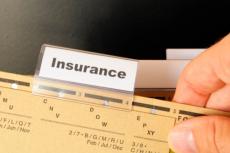
Drivers and homeowners hiking the voluntary excess on their insurance to reduce the premiums could be short changing themselves if they ever need to make a claim.
Over a third (35%) of UK insurance customers had raised their excess so much that they felt it wasn't worth making a claim, according to research by the bank. And 21% of them admitted they hadn't thought through the implications of increasing their excess.
A third of the insurance customers who later suffered an accident or damage to their car or home then found it wasn't worth their while making a claim as they had raised the excess too much.
Of those who did make a claim, nearly four in 10 had to use their savings to cover the excess, 16% had to use their credit card, and another 16% had to borrow money from a friend or relative.
The supermarket bank found 15% of customers had voluntarily increased the excess on their car or home insurance policies by £327 on average over the past three years.
Ben Tyte, head of insurances at Sainsbury's Bank, said: "If you're thinking about selecting a higher excess to reduce your monthly premium, be sure that this won't cause you any financial difficulty when it comes to making a claim. For example, if you later feel that you can't justify a claim in relation to the excess, this could be an unnecessarily stressful and expensive experience."
He added: "Those considering raising their excess should also consider other ways to reduce their insurance premium, for example, investing extra time in shopping around for the best cover at the most competitive price and looking for discounts and benefits."
It has also emerged that nearly two million Brits have driven a friend's car wrongly believing they were insured to drive it.
Research from LV= car insurance reveals that 2.2 million motorists have driven without insurance, with the majority of these (1.8 million) mistakenly believing they were insured at the time.
The motorists involved wrongly assumed the insurance on the vehicle they borrowed covered them, or that their own insurance automatically extended to other vehicles, according to the research.
Had the drivers been stopped by the police, they could have faced penalty points, a fine or a driving ban, the insurer warned.
This is more usually a feature of car insurance but it can also crop up in contents, mobile phone and pet insurance policies. An excess is the amount of money you have to pay before the insurance company starts paying out. The excess makes up the first part of a claim, so if your excess is £100 and your claim is for £500, you would pay the first £100 and the insurer the remaining £400. Many online insures let you set your own excess, but the lower the excess, the more expensive the premium will be.
Used by the holder to buy goods and services, credit cards also have a monthly or annual spending limit, which may be raised or lowered depending on the creditworthiness of the cardholder. But unlike charge cards, borrowers aren’t forced to pay the balance off in full every month and, as long as they make a stated minimum payment, can carry a balance from one month to the next, generating compound interest. As the issuing company is effectively giving you a short-term loan, most credit cards have variable and relatively high interest rates. Allowing the interest to compound for too long may result in dire financial straits.